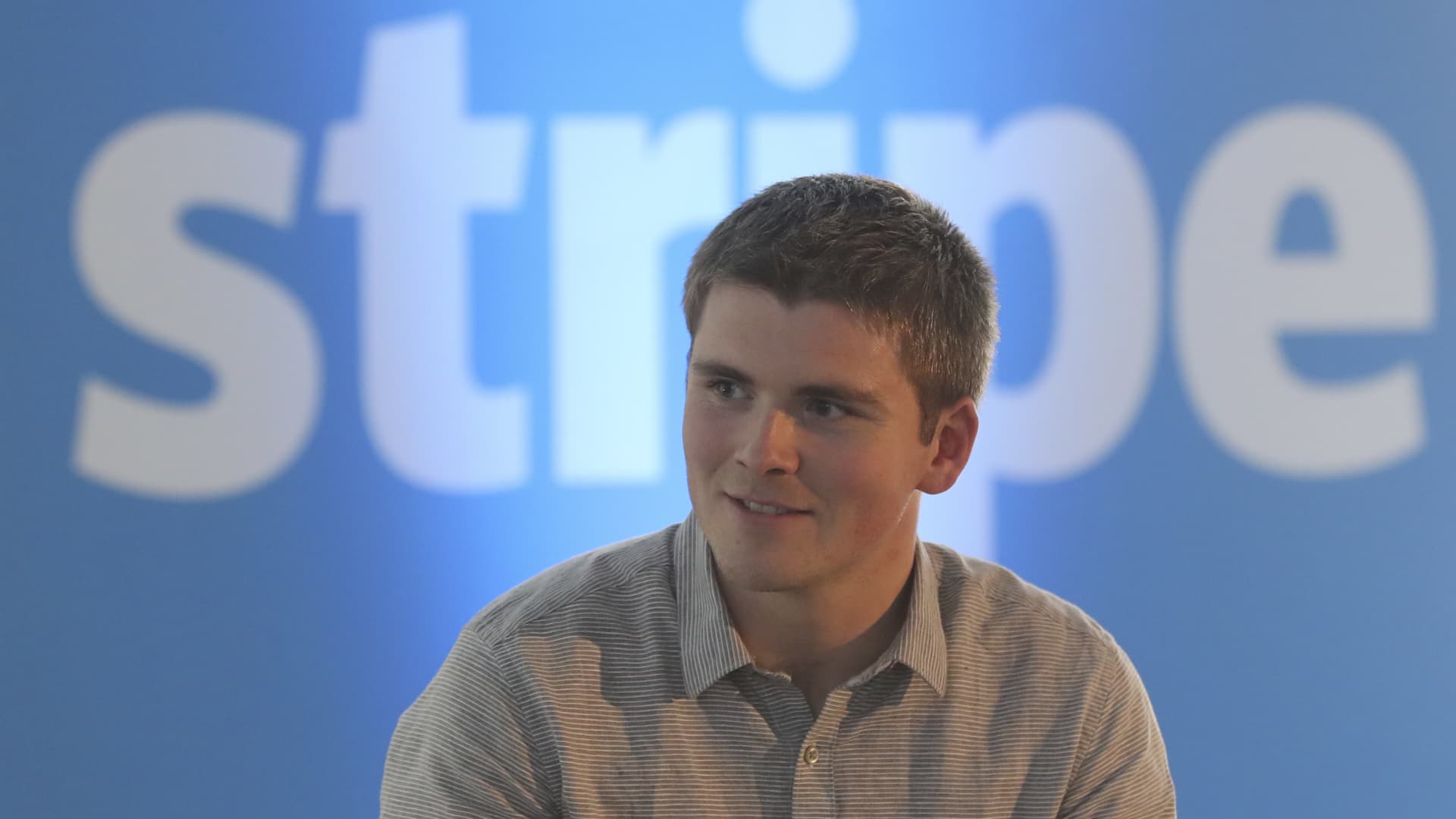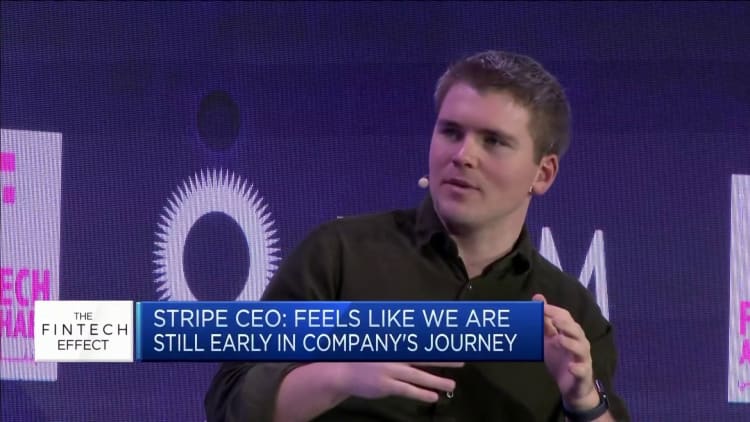
Stripe’s co-founder, John Collison, delivers a speech in Paris in 2016.
Jacques Demarthon | AFP via Getty Images
Payment processor Stripe raised $6.5 billion at a $50 billion valuation, the company said Wednesday, a sharp discount from its record valuation of $95 billion in 2021.
“Stripe does not need this capital to run its business,” the company said in a press release. The cash raise — with contributions from Andreessen Horowitz, Founders Fund, Goldman Sachs, and Temasek — will instead go towards providing liquidity to “current and former employees” and tax obligations associated with equity awards.
Stripe, which ranked eighth on CNBC’s Disruptor 50 list last year, has now slashed its valuation by almost half from its peak two years ago. The company builds payment processing software for e-commerce businesses like Amazon, Google, and Shopify.
Goldman Sachs served as the sole placement agent, while J.P. Morgan served as Stripe’s financial advisor.
Stripe has remained privately owned for over a decade, despite frequent speculation about an IPO. CNBC reported in January that the company would make a decision on a public offering within the next year.
Stripe’s newest Series I round will be non-dilutive, the company said. By providing “liquidity” to current and former employees, the company will offset the issuance of the round’s new shares. But the company has long maintained that private ownership is optimal.
“We’re very happy as a private company,” Stripe co-founder John Collison told CNBC in 2021. At the time, Collison dismissed rumors of a potential IPO.
In July, Stripe cut its internal valuation by 28%, from $95 billion to $74 billion. Then in January, The Information reported that Stripe again lowered its valuation to $63 billion. The reduction reflects the dramatic the pullback in tech stocks last year, which was the worst year for the Nasdaq since 2008.
Stripe laid off 14% of its workforce in November as leadership acknowledged misjudging how much the internet economy would continue to grow.
WATCH: Stripe co-founder says, ‘We’re very happy as a private company’
